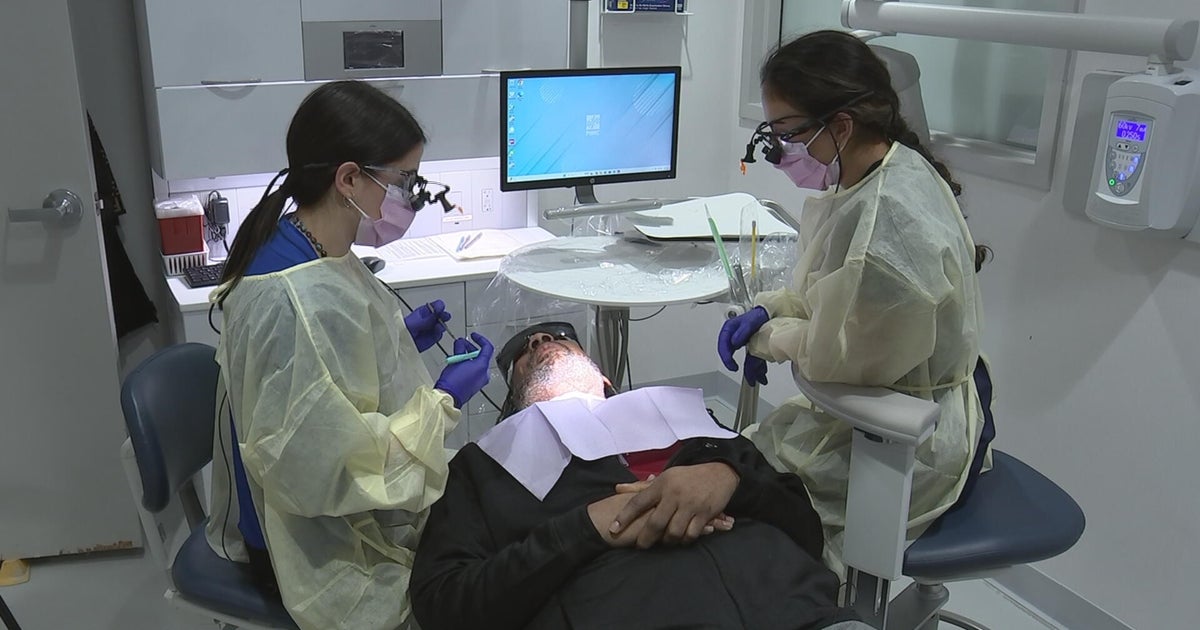What is perimenopause? The often-overlooked phase of menopause, explained.
Most women have a basic understanding of menopause, but have you heard of perimenopause?
During a "CBS Mornings" segment about fertility on Wednesday, co-host Gayle King admitted that she hadn't heard the term until a visit to the doctor — and she's not alone. Perimenopause has been gaining attention on social media as more women open up about this often under-discussed part of life.
On TikTok, for example, there are more than 457 million views for the hashtag #perimenopause, highlighting the interest in learning what this phase is all about.
To better understand, we gathered expert answers to common questions about perimenopause:
What is perimenopause?
Perimenopause means "around menopause," according to the Mayo Clinic, and refers to the time of life when the body is transitioning to menopause, which marks the end of someone's reproductive years.
"All through our reproductive years we have a (menstrual) cycle, and when the ovaries are not able to give off enough estrogen to have a cycle, that's technically menopause, which is when you haven't had a cycle in 12 consecutive months. Up till that period is perimenopause," explains Dr. Jessica Shepherd, OB-GYN and chief medical officer of Verywell Health.
When does perimenopause start and how long does it last?
Perimenopause can last anywhere from 7 to 10 years, throughout your 40s and early 50s, Shepherd says.
"The average age of menopause is 52, so during that perimenopausal time phrase is when you might start to have symptoms," she says, explaining that's when estrogen is decreasing.
In certain cases, some women may notice changes as early as their mid-30s, Mayo Clinic adds.
What are perimenopause symptoms?
People going through perimenopause can expect a few symptoms, Shepherd says, including:
- hot flashes
- night sweats
- mood changes
- decrease in energy
- menstrual cycles that come and go
- sleep pattern disturbances
- difficulty maintaining weight
- irritability
Some of these symptoms can also be experienced during menopause, she notes.
Mayo Clinic adds that some people may also experience vaginal and bladder problems, changes in sexual function, bone loss and changes in cholesterol levels.
- Weight gain in menopause: Why does it happen, and what can you do?
- How long should menopause symptoms last?
How can you treat perimenopause symptoms?
There are treatment options that can be considered if perimenopause symptoms are troublesome.
"Some health care providers put women who are in perimenopause on birth control pills because it has some estrogen," Shepherd says, explaining this can help with hormone changes.
Lifestyle changes can also play a part in alleviating symptoms.
Shepherd suggests increasing your protein intake and exercise, including weight training.
What are some misconceptions about menopause and perimenopause?
"It's more important to understand menopause than perimenopause." Shepherd thinks changing — and increasing — conversations around perimenopause is important.
"Perimenopause is very misunderstood," she says. "It's this approach to menopause that often is overlooked, and people don't understand what comes with it."
"Your labs are normal, so nothing is different." Even if a health care provider isn't seeing any difference in your lab test results, if you're starting to feel changes, Shepherd says it's important to be heard.
"Ensure that someone is listening to their symptoms rather than their labs in order to get some of the alternative care that they can get when it comes to perimenopause."
"I'm too young to learn about perimenopause." "We should be educating people throughout the perimenopausal phase instead of waiting till they hit menopause," Shephard says.







